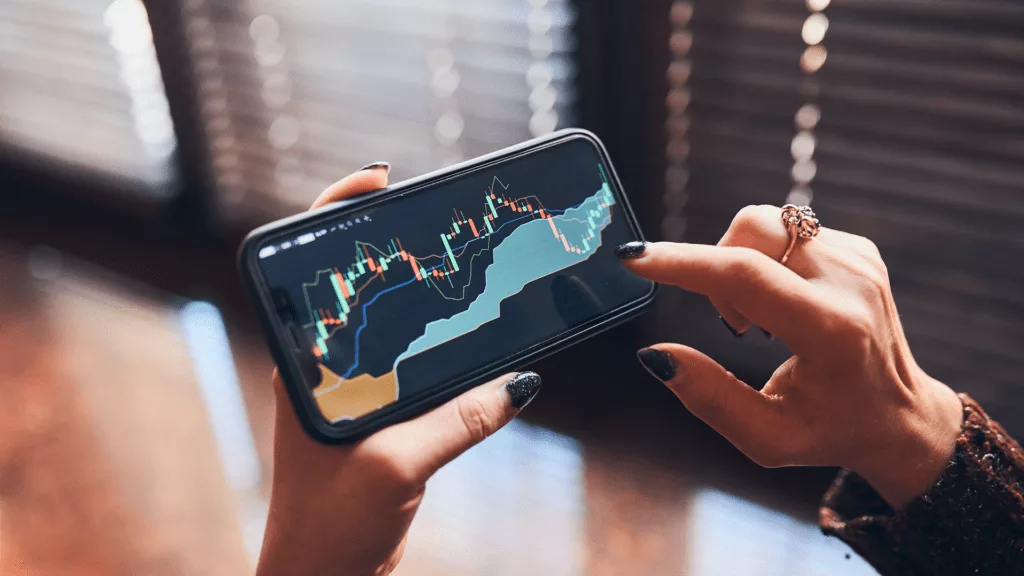Written by: Cole Buffehr
One of humanity’s great shared experiences is FOMO: Fear of Missing Out. Even if you were raised in the Himalayas by monks and attained enlightenment, there was some point in your childhood or adolescence where you felt like you might be missing out on something.
Thanks to social media and the internet, we now experience this feeling almost every day. A question I get frequently from clients who don’t want to miss out on a good investment opportunity they may not be aware of is “What should I invest in right now?”
Before we attempt to answer that question, we need to figure out if it’s even a good idea to invest right now. If you’ve already determined that investing is a good idea and you want to know what to invest in or if now is a good time to invest, scroll down past this next section.
4 Smart Things to Do Before Investing
#1 – Pay off credit cards and other high-interest debts.
Putting $5,000 toward a credit card balance with an interest rate of 20% would save you $1,000 over the course of a year. The same principle applies to all other debts. If the interest rate is above 7%, work on paying it down and think of it like getting a rate of return equal to the interest rate. The higher the interest rate, the faster you want to pay it off.
Federal student loans can be the exception. If you’re pursing Public Service Loan Forgiveness or currently on administrative forbearance, you may want to hold off on paying down those loans any more than is required.
Read more about paying off debts: Debt: Some Guidance on How to Get Rid of It
#2 – Make sure you have a proper emergency fund.
I can give you a pass for not having an appropriate “rainy-day” fund yet if you’re currently working on paying off some credit card debt that’s accruing interest. But after you’ve paid off your credit cards balances, you’ll want to start preparing for emergency expenses.
Car repairs, home repairs, medical bills, and many other things can badly disrupt your day-to-day life. Stress and frustration are to be expected in these situations, but you can mitigate the financial damage by maintaining an emergency fund. Credit cards can be a last resort, but then you’re likely to be faced with 20%-30% interest rates; I’d rather we all try to avoid that if possible.
If you have already secured own-occupation disability insurance with a 90 or 180-day waiting period, 3-6 months’ worth of your fixed expenses would be a good emergency fund target. If you haven’t yet gotten disability insurance, I’d recommend learning about the 7 mistakes doctors make with disability insurance.
#3 – Take advantage of any “free money” your employer may give you for contributing to your 401k or 403b.
Some employers incentivize saving for retirement by matching a portion of your contributions up to a certain limit. For example, they might match 100% of your contributions up to 3% of your income – you contribute 3%, they contribute 3%.
Take advantage of this! It usually doesn’t take much to get the full match. Plus, can you think of any other investments that give you an immediate 1.5x to 2x multiplier to your initial deposit without any added risk or consequences? I can’t but let me know if you do.
However, there’s a chance your employer’s contributions are tied to a vesting schedule. If they are, you must wait a few years before they become yours. Ask your benefits officer or check your benefits package to confirm and consider whether you’ll be with that employer long enough to see the benefits of your employer matching your contributions.
#4 – Ask yourself, “When do I need this money back?”
Every investment comes with some level of risk. If you have $100,000 in cash that you’re going to use for a home down payment next year, you’re not going to take that cash and go put it all on black at a roulette table in Vegas, right? Maybe you would, but I certainly wouldn’t recommend it.
Be mindful of your time horizon before investing. Your time horizon for an investment is the amount of time you have before you need the money back from that investment.
If you know you’ll need a certain amount of money for a purchase or expense within the next 5 years (i.e., you have a 5-year time horizon or less), investing may not be appropriate. With a short time horizon, we want to reduce the possibility of a devastating event crushing your investment portfolio and preventing you from accomplishing your goal. The prudent decision is often just to stick the money in your savings account.
What should I invest in?
At any given time, a certain company’s stock, a cryptocurrency, NFT, lottery ticket, racing horse, or almost anything else could be the best thing to invest it. Unfortunately, nobody can predict when exactly a given investment will skyrocket in value with 100% accuracy.
What you should invest in depends on your time horizon (described above), risk comfort level, and other goals. If you have a long time until you need your money back, some variation of a globally diversified portfolio using mutual funds or ETFs would likely be appropriate. Depending on the type of account you want to invest in, your options may be limited or different from other account types.
Read more about the importance of diversification: A Lesson From Turkeys
“But Cole, why shouldn’t I keep investing in my favorite stocks and cryptocurrencies that have gone up over 700% in the last 5 years?” Maybe you should! I can’t predict the future. You may have just found the best investments in the world; only time will tell. Just be careful acting on predictions.
One of Corey Janoff’s 6 secrets to investing is that how much you invest matters more than what you invest in. The more you invest, the more adversity you can withstand and the more bad investments you can afford to make. The less you invest, the more you’re relying on your investments performing well to accomplish your goals. Saving a lot of money is often easier said than done, but it’s still sound advice.
Something you may not have considered before is how you personally feel about the companies you’re investing in. Do they align with your political or religious views? Do you have time to research all of them and figure out how you feel about the companies and what they do? If this is something that matters to you, ask your financial professional about SRI (socially responsible investing, ESG investing (environmental, social, and governance), and impact investing.
Read more about SRI, ESG, and impact investing: Impact Investing and How to Get Easily Involved
Should I Invest Right Now?
I’m not sure what all of your concerns are about investing right now, but I might be able to guess a few: stock indexes hovering around all-time highs, crazy housing markets, and a global pandemic about to enter its 3rd year. With everything that’s going on, it’s perfectly logical to wonder if it even makes sense to invest now. Technology only allows us to build skyscrapers up to a certain height; how high can stock prices go before gravity pulls them back down to Earth?
Is now a good time to invest? Again, consider why you’re investing in the first place and what the time horizon on your investment is. Think about the role that your emotions play in your decision to invest or not. Emotions can often cloud our judgment in the moment; I’m not telling you to ignore your emotions but basing investment decisions on them isn’t a sound strategy.
Read more about investing when the market is going down: Investing in a Bear Market
If you have a pile of money that you want to invest, consider investing it in increments over the course of a few months or a year. Do you need to invest all of that money right away? The strategy of investing a large sum of money by investing small chunks of it over a period of time is called dollar-cost averaging.
Instead of trying to pick the best moment to invest and hoping you’re right, you can average out the cost at which you’re buying into the stock market or whatever you’re investing in. If you buy a little bit and the price goes down, your next purchase may be at that lower price. If the price goes up, then at least you bought some at the lower price first.
Read more about different ways of calculating investment returns: The Sequence of Returns Matters
What Should I Invest in Right Now?
It depends! Hopefully, you took away some things to consider. The right answer is usually a boring one and we can’t give specific recommendations in a blog post anyways.
If you’re still feeling lost or overwhelmed and you don’t want to solicit advice from random strangers on Reddit, you would benefit from consulting with a financial advisor to discuss your specific circumstances and goals.
Always remember that we cannot control how investments perform; we can only control how much we save, what we invest in, and what we spend. Save more, spend less, and you won’t have to worry as much about the rest.
Disclosures:
All examples are hypothetical and for illustrative purposes only. All investments have the risk of loss, including total loss of principal. Saving more or spending less does not eliminate investment risk. Investments involve fees and expenses, which will impact the net results. Taxes can further impact net portfolio results. Consult with a tax advisor for your specific tax implications. Consult with a financial advisor before implementing or changing your investment strategy.






